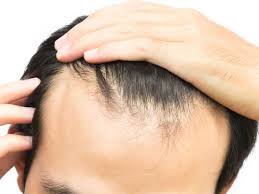There are many factors to consider when it comes to hair loss even if you are thinking about receiving treatment at a hair loss clinic. You can visit https://www.veraclinic.net/en/ for more information on hair transplant and other treatments for hair loss.
It is a good idea to make sure that you are eating a healthy diet and do not have unhealthy habits like smoking, especially if you are considering a hair transplant in the future. The role that nutrients play in the health of a person’s hair is something that has been recently discussed by Guo and Katta in a paper published in 2017.
People who are following certain diets may actually experience hair problems such as potential shedding of hair. In fact, the condition known as acute telogen effluvium has been linked to diets that are very low in protein and can happen when people have lost a lot of weight very quickly.
Extreme deficiencies of certain nutrients can definitely cause hair loss. For instance, a lack of vitamin B3 can lead to pellagra with associated alopecia. Although this is an uncommon condition for most people, it does prove that having a nutritionally sound diet is very important in maintaining healthy hair.
Many supplements are marketed to help you have healthy hair. However, it is best to consult with specialists at a hair clinic to find the accurate and scientifically valid information on which nutrients are actually best for your hair.
Which supplements help hair growth?
Zinc is a mineral which when deficient does lead to brittle hair, and therefore it is one essential nutrient that does need to be taken into the body. Also, consider that this mineral helps the immune system and helps wounds to heal, which is going to be very important if you have hair transplant surgery. You want to be certain that the incisions that are made heal quickly without complications.
Even men with male pattern hair loss have shown to often have below normal levels of zinc in their blood. Scientists suggest that zinc supplements may be helpful in these situations in at least slowing down hair loss. However, certain alopecia conditions are genetically and hormonally caused which means that hair loss may still progress. There is no downside to zinc supplementation provided a person does not take too much.
Researchers have found that a lack of linoleic acid and alpha-linolenic acid can lead to some loss of head hair and even eyebrows. These fatty acids are not normally lacking in a person’s diet with deficiencies most commonly associated with malabsorption conditions.
There is little scientific data available on most vitamins and hair loss. However, a healthy balanced diet is still important not only for your hair but for the rest of your body too. One vitamin, biotin, has been shown to be essential for healthy hair since a lack of the nutrient has been linked to alopecia.
Proteins, as well as antioxidants, are crucial to keep your skin and hair healthy. In general, following a healthy diet should help you regardless of if you decide to have hair transplant surgery in the future.

Leave a Reply